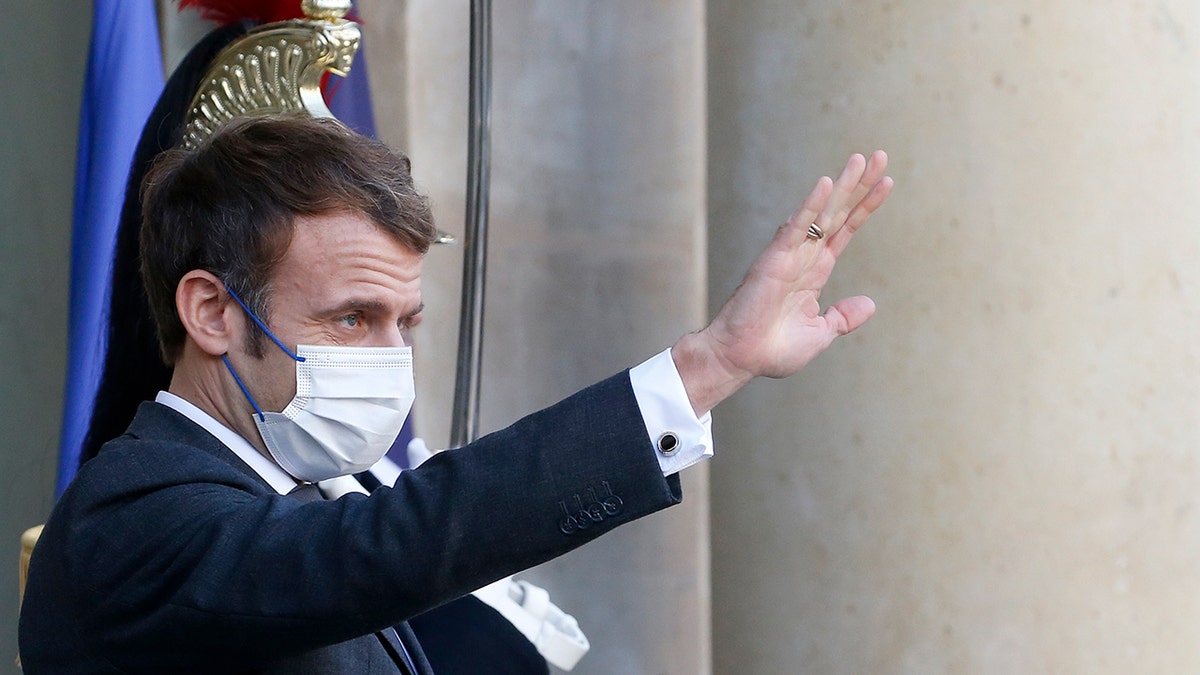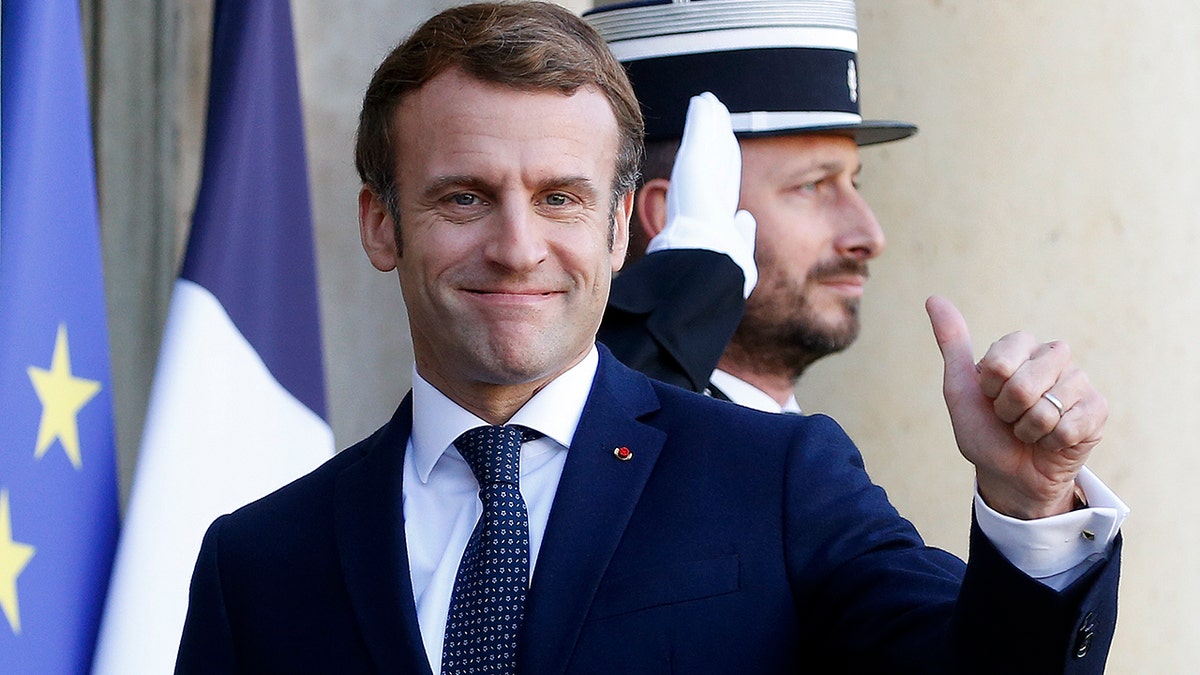Fox News Flash top headlines for December 15
Fox News Flash top headlines are here. Check out what's clicking on Foxnews.com.
French President Emmanuel Macron is expected to defend his actions during his presidency in a long interview Wednesday on national television, in a bid to boost his popularity ahead of April’s presidential election.
Macron, who is expected to seek a second term, has yet to formally declare his candidacy. He is under criticism from rivals in the race who say he is already campaigning and is using his presidential status to do so.
The 43-year-old centrist president answered journalists' questions in a long pre-recorded interview to be broadcast on Wednesday evening at prime time on national television channels TF1 and LCI.
CHINESE EMBASSY IN FRANCE RELEASES ANTI-AMERICAN SONG: US IS ‘HUMAN RIGHTS COP’

French President Emmanuel Macron wearing a protective face mask waves as German Chancellor Olaf Scholz leaves the Elysee Presidential Palace after their working lunch on Dec. 10, 2021 in Paris, France. (Chesnot/Getty Images)
The program recorded Sunday is expected to focus on domestic issues. Macron answered "questions asked by the French" and spoke about "events which marked his term," including the COVID-19 crisis and anti-government protests, expressing "his satisfactions and his regrets," the media group said.
It comes after Macron staged a two-hour news conference last week to unveil his priorities for Europe as France is about to take over the rotating presidency of the EU next month. The French president is spending Wednesday and Thursday in Brussels for European meetings.
Presidential contenders from the right and the left have criticized the media exposure the program gives to Macron as the race is underway for the April 10 presidential election.
Conservative candidate Valérie Pécresse, Green challenger Yannick Jadot and far-left leader Jean-Luc Mélenchon have called on the French media watchdog, the CSA, to ensure a fair repartition of the speaking time on television and radio for them.
Pécresse, whose interview on another channel was cancelled because of Macron's program, said "we can’t have a president-candidate who has television channels open up for him whenever he wants it and is campaigning for hours on end, while his opponents get five minutes on a panel to respond to him."
Government spokesman Gabriel Attal countered that "not campaigning now is more of a disadvantage than an advantage for us because it prevents us from having enough time to respond to attacks and criticism."
Instead, "we must make difficult decisions. You think it’s campaigning to close nightclubs? You think it’s campaigning to take measures to encourage the French to get the vaccinated?" he told reporters on Wednesday in reference to COVID-19 restrictions.

French President Emmanuel Macron thumbs up at the Elysee Presidential Palace on Dec.1, 2021 in Paris, France. (Chesnot/Getty Images)
Elected in May 2017 on a pro-business, pro-European platform, Macron faced the emergence of the yellow vest movement the next year, named after the vests French drivers must keep in their cars for emergencies. The protests against a planned fuel tax hike quickly spread into a broader movement against economic injustice and the way Macron was running France. For months, weekly protests across the country often degenerated into scattered violence.
CLICK HERE TO GET THE FOX NEWS APP
Last year, the COVID-19 pandemic led Macron to delay some economic changes, including a difficult overhauling of France’s pension system he had previously promised to push through.
Polls show Macron has regained some popularity since the yellow vest crisis and is now perceived as the front-runner in next year's presidential election.









































